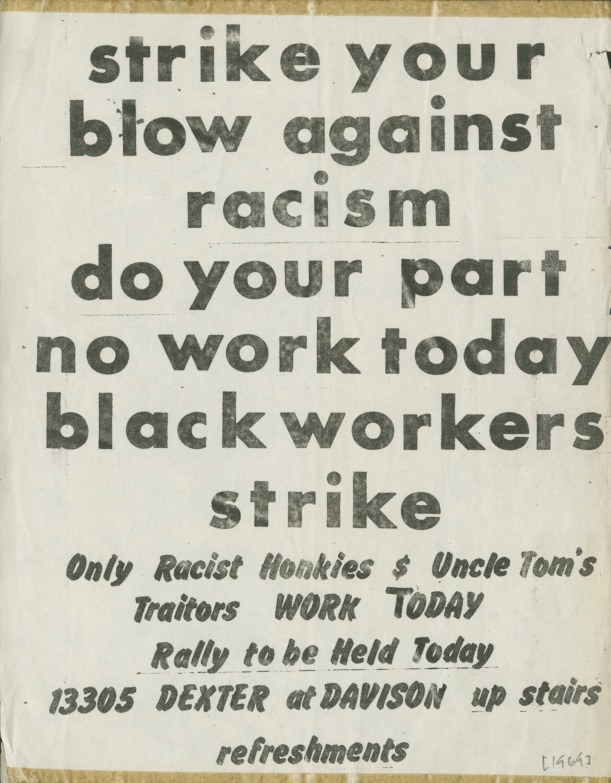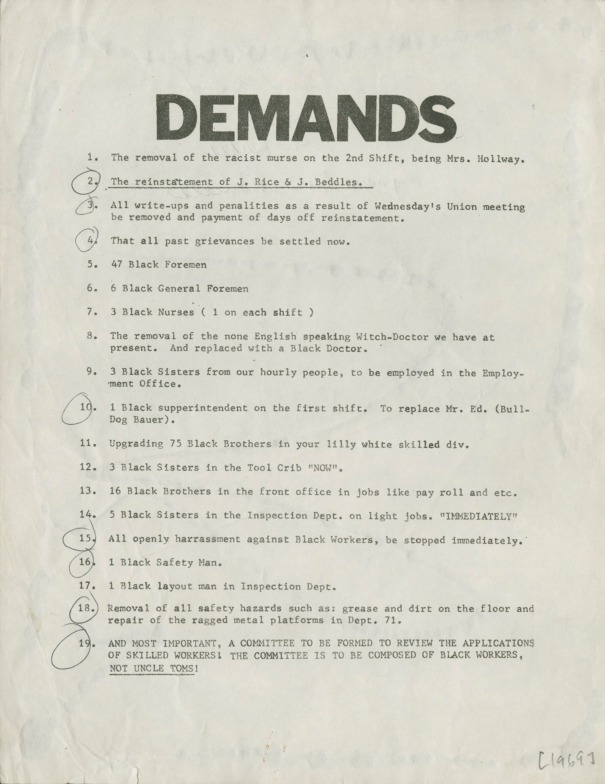Dodge Revolutionary Union Movement
The same anger and drive for justice that had born the Civil Unrest brought a new focus to poor working conditions of Black auto workers, highlighting the UAW’s perceived indifference to these matters. Without union leadership’s approval or support, The Dodge Revolutionary Union Movement (DRUM) staged a wildcat strike against Chrysler Corporation at the Dodge Main plant in Hamtramck on May 2, 1968 to demand that both the company and the union make improvements for Black workers. Led by factory worker and DRUM leader General Gordon Baker, DRUM used the wildcat strike as a powerful tool. UAW leadership actively condemned DRUM’s actions and Marxist politics, and the organization folded in the early seventies. In that short time, DRUM and it’s umbrella organization, the League of Revolutionary Black Workers, forced the UAW to face its own systematic racism, helped end the racially charged S.T.R.E.S.S. police program, and improved working conditions in factories around Metro Detroit.
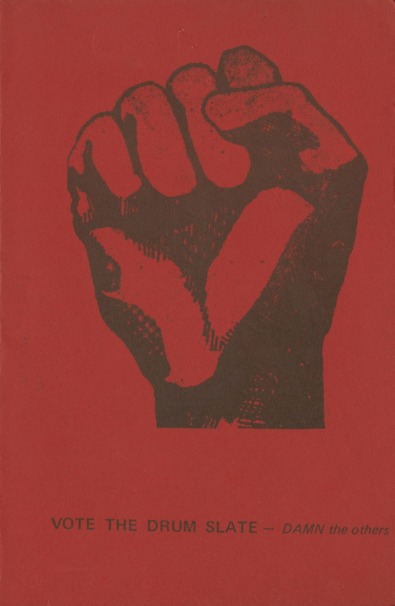
Union election materials for UAW local race. Flyer lists candidates approved by DRUM, stating “VOTE THE DRUM SLATE – DAMN the others.” Marxist and revolutionary roots meant DRUM did not hold back in their desire to transform the UAW to its core. Source: Kenneth V. and Sheila M. Cockrel Collection, Box 6, folder 24. Click to open the document and read its contents.
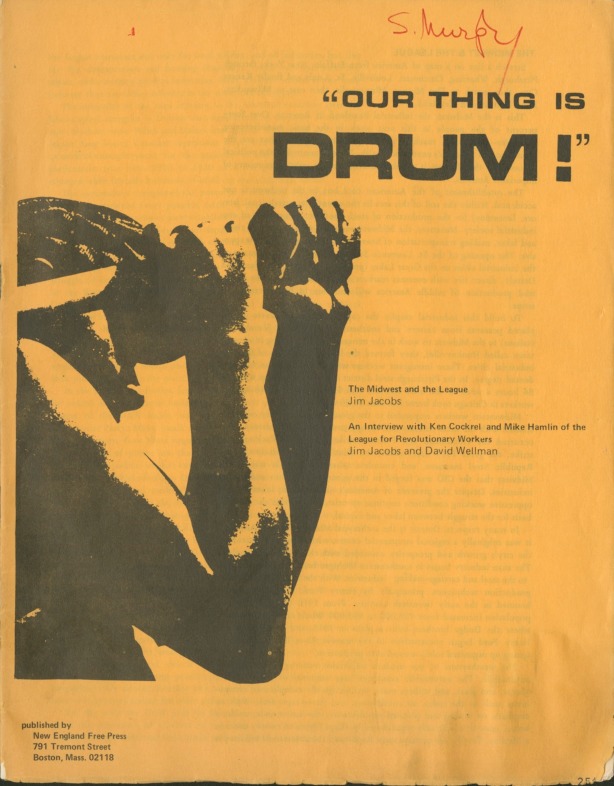
Booklet of articles from the publication Leviathan, it chronicles the historical origins and political philosophies of DRUM and the League of Revolutionary Black Workers, an umbrella organization formed out of DRUM that networked all the recently formed radical worker groups. Source: Kenneth V. and Sheila M. Cockrel Collection. Box 7, folder 7.
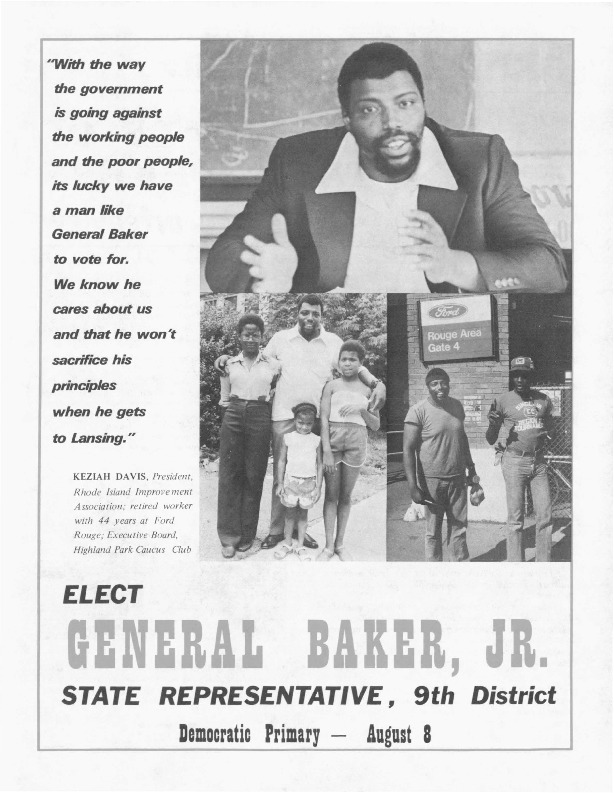
Campaign material for General Gordon Baker’s run for Michigan state representative. An ardent Black revolutionary and strong leader for DRUM during its inception, Baker led the group’s initial wildcat strike at the Dodge Main plant in 1968. Source: Detroit Revolutionary Movements Records. Box 16, folder 2.

Masthead from the Eldon Wildcat, a publication from the Eldon Revolutionary Union Movement, a DRUM counterpart at Chrysler's Eldon Avenue plant. 1971. Source: Eldon Wildcat. Publication. Box 1, folder 2.
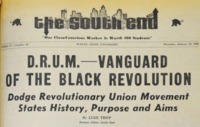
In 1968, John Watson was selected as editor of Wayne State University’s Daily Collegiate, which he changed to the, “South End,” in recognition of Wayne State’s location south of General Motors. He turned the newspaper into a resource for radical causes, tackling race and class issues on a daily basis. This included reporting on the wildcat strikes of DRUM and other similar revolutionary actions. Source: Wayne State University South End Newspapers.
What were the implications of the more radical approach towards journalism at the South End during the late sixties and early seventies? Where could you go to look at what impact this had on radicalism and social movements in Southeast Michigan?
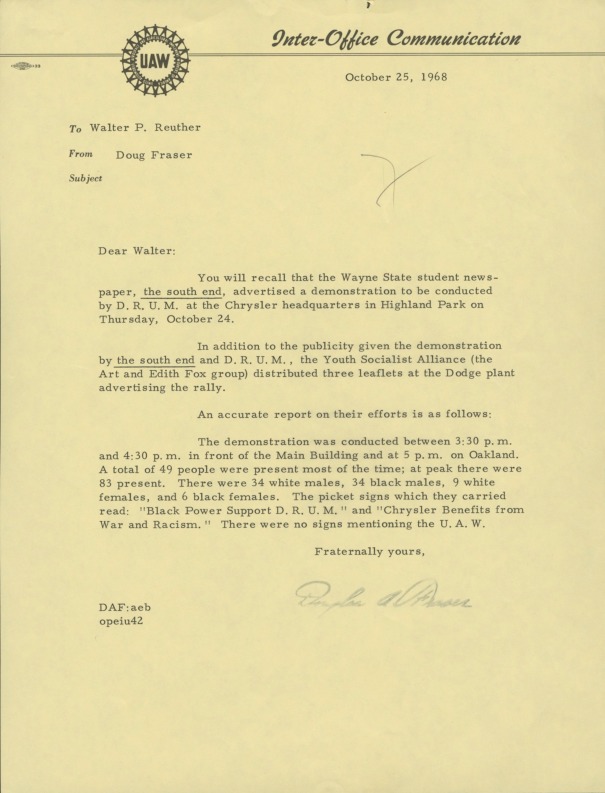
Despite DRUM’s upstart status, its militant stance on race in the auto factories and criticisms of union leadership quickly caught the attention of Walter Reuther and the UAW. DRUM claimed the UAW did not care about the plight of its Black members, while the union worried that the wildcat strikes weakened their ability to negotiate with employers. Source: UAW President’s Office: Walter P. Reuther Records, Box 51, folder 4.
Walter Reuther and the UAW helped fund various high-profile civil rights causes during the sixties, yet DRUM accused the union of systematic racism and neglect towards the suffering of Black workers. Where would you go to determine the actual priorities of the UAW leadership regarding racial issues?

